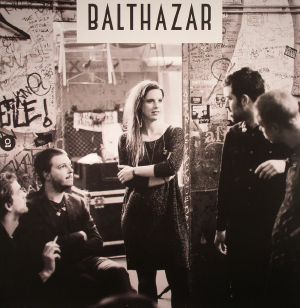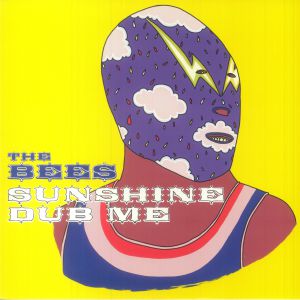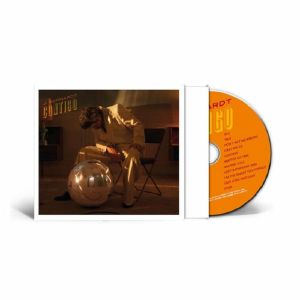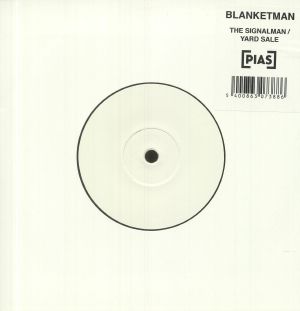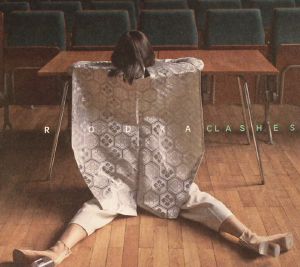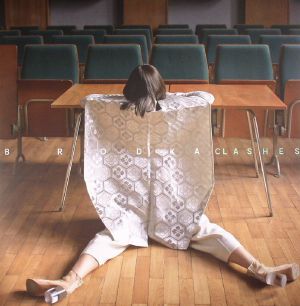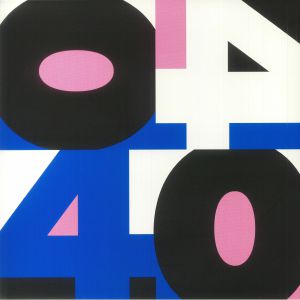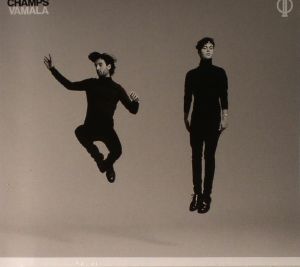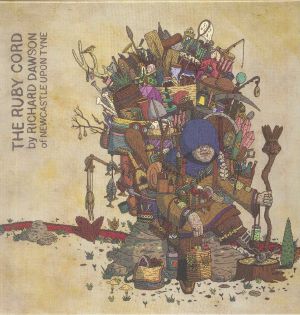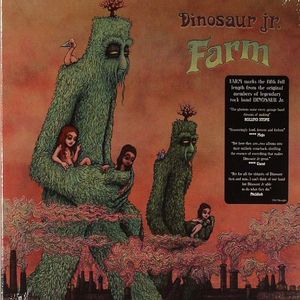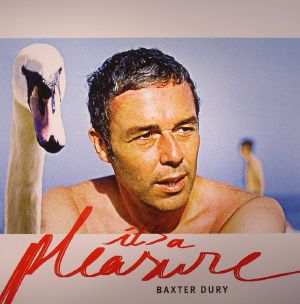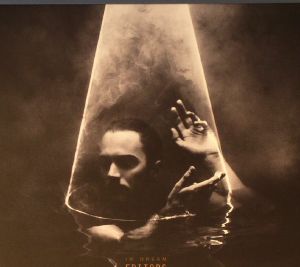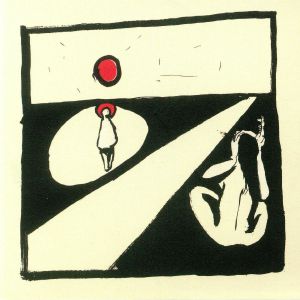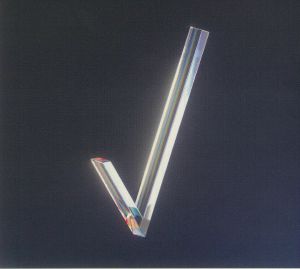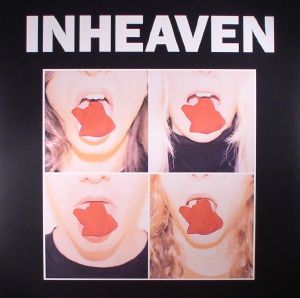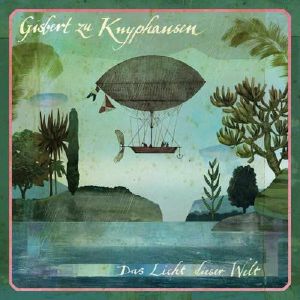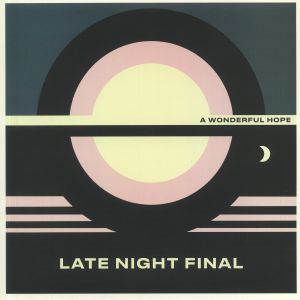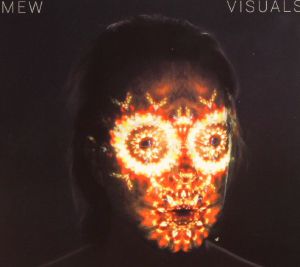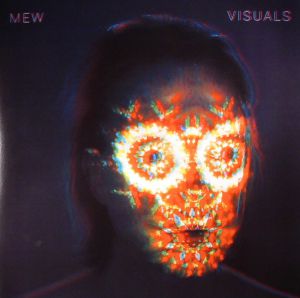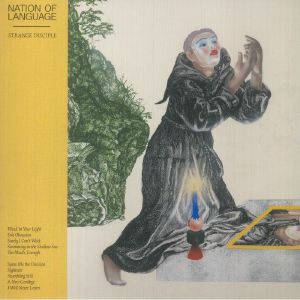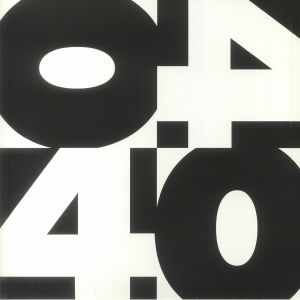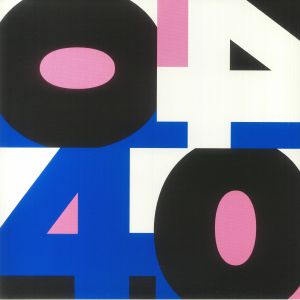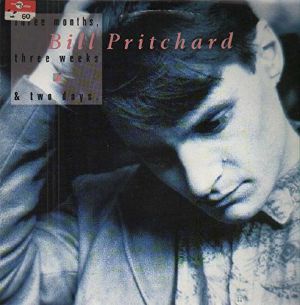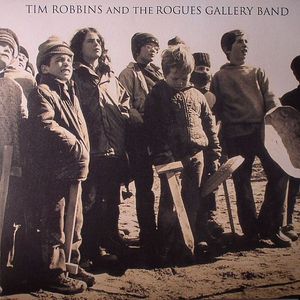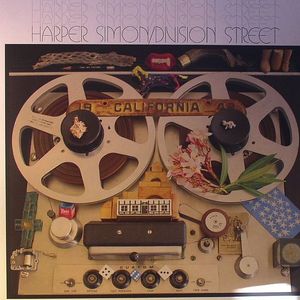Receive new release alerts for PIAS
Filter
Genre
Featured
Release Title
Price
PIAS Schallplatten & CDs
Browse the latest Vinyl & CD releases on PIASSimilar labels:
Review: This warm and summery new offering from Australian siblings Angus & Julia must be ironically titled. 'Snow', the self-produced follow-up to their acclaimed 2014 album continues in a similar vein of breezy folk & pop, but with new found confidence. This is perhaps the effect of Rick Rubin's advice to them to write together as a duo, with sections of swapping verses, lyrical call and response, and vocal contrasts showing there's no sibling rivalry going on here. There are a few slow-burners that'll take a little while to sink in here, but overall this is another polished set from the duo, where each deceptively catchy track leans pleasantly into the next.
… Read moreout of stock $11.65
in stock $10.55
Cat: PIASR 788T. Rel: 27 Apr 16
Indie/Alternative
out of stock $14.70
Cat: PIASC 1029EP. Rel: 01 Dec 23
Indie/Alternative
Review: Founding Bees members Paul Butler and Aaron Fletcher recorded the original Sunshine Hit Me on the Isle of Wight in their own home garden studio which they called The Shed. A year after release in 2003 it got recognised with a Mercury Music Prize nomination and spawned some big singles. Now, 20 years on, it arrives once more but in an all-new and dubbed-out fashion. The six cuts include three which have never previously been released in any physical format and bring a fresh dimension to the originals.
… Read moreGespielt von: Marco Gallerani
in stock $12.49
out of stock $10.83
out of stock $11.65
Rio
Taxi
Don't Get Me Wrong
Last Waltz
Contigo
Matter Of Time
Mayday Call
Left Bathroom Sink
I'm The Ghost You Forgot
Our Love Was Easy
Free
out of stock $11.65
in stock $13.88
out of stock $11.65
Clashes (heavyweight purple vinyl LP + postcards + MP3 download code)
Cat: PIASR 870LP. Rel: 03 Jun 16
Indie/Alternative
out of stock $12.20
out of stock $13.60
out of stock $11.04
out of stock $11.65
in stock $11.09
Review: The legendary Dead Can Dance return with their first studio album in six years! Coming from a school of Australian music pioneers that include Severed Heads and Essendon Airport among their class, this latest missive sees the duo maintain their psychedelic, exotic and mystic sound, with hints of witchcraft and ritualisms eternally abound. The album pays homage to Dionysus, Greek God of wine, fertility and religious ecstasy, and naturally the album oozes these qualities itself. Across the LP Brendan Perry plys his hand to a mass of instruments heard as otherworldly to the west, with a specific set stemming from the Balkans with an ensemble use of zournas, gadulkas and gaidas. Meanwhile Lisa Gerrad's exquisite voice remains as haunting as it ever was, be up front in the mix or lurking amongst the album's lush atmospheres. The Dead Can Still Dance.
… Read moreout of stock $10.55
out of stock $12.20
out of stock $11.09
out of stock $11.65
It's A Pleasure (limited white vinyl LP + MP3 download code)
Cat: PIASL 026LPX. Rel: 17 Oct 14
Indie/Alternative
out of stock $11.65
Violence (Deluxe Edition) (CD + magnets + inserts + poster box set)
Cat: PIASR 1020CDBX. Rel: 09 Mar 18
Indie/Alternative
Review: For their sixth full length album 'Violence', melancholic Birmingham alt-rockers Editors have adopted a grander synth-pop sound to frame their typically dark songwriting in. This change in direction comes from collaborating with the album's producer Leo Abraham and composer Blank Mass, who helped the band hone their electronic craft. The songwriting pairs grandiose stadium riffs with assertive synth-work; 'Hallelujah (So Low)' goes straight for the jugular with fat synth leads and lo-fi drums, and the chorus of lead single 'Magazine' balances sections of punchy electronic swagger with singalong melodic euphoria. On 'No Sound But The Wind', there's a glimpse of an earlier Editors sound, more atmospheric and spacious than the tracks that surround it - unsurprising as it's a song the band first debuted back at Glastonbury 2008 and have been re-working since. Following 2015's somewhat confused 'In Dream', Editors sound reinvigorated and confident in the direction 'Violence' is taking them in.
… Read moreout of stock $11.07
Review: Easily outgrowing the original perception of them as stadium-indie bringers of gloom, Editors have evolved steadily with each record, and seemingly found themselves increasingly more comfortable each turn along the way. 'In Dream', the fifth from the Birmingham outfit, finds them expanding on the widescreen sweep of their sound, experimenting further with electronics, yet still maintaining a core of intimacy and introspection that has become their trademark. Thus, perversely, what may be their darkest record to date is also their most uplifting, with indelible songwriting, synth filigree and nocturnal atmospherics colliding to provide a black-clad tour de force.
… Read moreout of stock $10.27
out of stock $11.65
out of stock $11.65
out of stock $14.98
out of stock $11.65
Real Life (reissue) (limited gatefold clear vinyl LP + MP3 download code)
Cat: PIASR 1070LP. Rel: 23 Aug 19
Indie/Alternative
out of stock $12.20
out of stock $11.65
A Wonderful Hope (limited transparent yellow vinyl LP + MP3 download code)
Cat: PIASR 5050LPX. Rel: 11 Dec 20
Indie/Alternative
out of stock $11.70
out of stock $13.60
Review: Stubbornly hard to classify over their 22 years in the game thus far, Danish troupe Mew might flirt with shoegaze dreaminess, progressive inclinations and sugary pop, yet ultimately on 'Visuals' come up with a sound that's akin to no-one but themselves. Whilst it might be easy to see this hospitable record as a lurch for stadium territory, Mew have always displayed an ear for both sonic experimentation and delirious melody, and this collection merely sees them stripping their songwriting down into concise ditties that are rich in ethereal atmosphere as well as epic grandeur. The sense of wonder in Mew's music is as omnipresent as ever it was, even amidst the end-credits euphoria of these indelible songs.
… Read moreout of stock $11.65
Visuals (Deluxe Edition) (limited gatefold LP + 3D sleeve & glasses + MP3 download code)
Cat: PIASR 940LPS. Rel: 28 Apr 17
Indie/Alternative
Review: Stubbornly hard to classify over their 22 years in the game thus far, Danish troupe Mew might flirt with shoegaze dreaminess, progressive inclinations and sugary pop, yet ultimately on 'Visuals' come up with a sound that's akin to no-one but themselves. Whilst it might be easy to see this hospitable record as a lurch for stadium territory, Mew have always displayed an ear for both sonic experimentation and delirious melody, and this collection merely sees them stripping their songwriting down into concise ditties that are rich in ethereal atmosphere as well as epic grandeur. The sense of wonder in Mew's music is as omnipresent as ever it was, even amidst the end-credits euphoria of these indelible songs.
… Read moreout of stock $14.15
Review: Danish indie-rock kingpins Mew here return after a gap of six years with an album that parlays a prog rock sensibility into pop melody in characteristically engaging and charismatic style. Balancing out drifting guitar ambience with vocalist Jonas Bjerre's engagingly unconventional vocal inflections, the four-piece create a celestial wash of sound that is as beguiling as it is questing in nature. Russell Tissack of Bloc Party's guest appearance adds taut riffage to the picture, on an album with a widescreen sweep and a rare delicacy of touch - these songs sound paradoxically fit for stadiums and headphones alike.
… Read moreout of stock $11.65
I Want That You Are Always Happy (2xLP + free MP3 download code)
Cat: PIASR 505DLP. Rel: 02 Jun 11
Indie/Alternative
out of stock $14.15
Orchestral Variations (gatefold heavyweight vinyl 2xLP)
Cat: PIASR 930DLP. Rel: 27 Jan 17
Indie/Alternative
Review: This shoegaze supergroup (featuring members of Mogwai, Slowdive and Editors) turned heads with their debut of last year, proving to be rather more than the sum of their parts, yet they've surmounted expectations here by producing something if anything even more special. Whilst the title of this new work might suggest a more ornately arranged and overblown variant on the shimmering guitar overload of their earlier incarnation, 'Orchestral Variations' triumphs by stripping these songs back to their bare essence, arriving at an emotional resonance and wintry melancholia that is a wonder to behold.
… Read moreout of stock $11.65
Strange Disciple (B-STOCK) (clear vinyl LP (indie exclusive))
Cat: PIASR 1421LPC (B-STOCK). Rel: 01 Jan 90
Coldwave/Synth
B-STOCK: Creasing to corner of outer sleeve but otherwise in excellent condition
Review: ***B-STOCK: Creasing to corner of outer sleeve but otherwise in excellent condition***
On Strange Disciple, Brooklyn-based cold synth pop trio Nation of Language explore their relationship with a very distinct set of emotions: hopeless devotion, temptation, guilt. Like a religious zealot gone rogue - perhaps an image evoked by the cloaked figure on its front cover - the album seems to sonically bastardise its various new wave, post-punk and shoegaze influences, all while channelling the increased energy that has slowly found its way into the music. It mirrors the band's picking-up-of-the-pace as their fanbase has grown and touring schedule has filled up over the years.
… Read moreOn Strange Disciple, Brooklyn-based cold synth pop trio Nation of Language explore their relationship with a very distinct set of emotions: hopeless devotion, temptation, guilt. Like a religious zealot gone rogue - perhaps an image evoked by the cloaked figure on its front cover - the album seems to sonically bastardise its various new wave, post-punk and shoegaze influences, all while channelling the increased energy that has slowly found its way into the music. It mirrors the band's picking-up-of-the-pace as their fanbase has grown and touring schedule has filled up over the years.
out of stock $11.49
Review: Alongside fellow Belgians Front 242, The Neon Judgement are widely regarded as pioneers of electronic body music (EBM), a synthesised slice of underground noise that incorporates elements of electro and industrial to often disorienting and intense effects. Led by Dirk Timmermans and Frank Vloeberghs, the pair combined synth pop and post punk with more abrasive tones, unusually, for EBM, bringing guitar work to the fore. Marking 40th years of the Play It Again Sam (PIAS) imprint, a veritable institution in its own right that has itself influenced many bands and scenes, some of TNJ's most triumphant efforts and attempts at pushing the boundaries of genre and style forward are collected here. A selection of tracks that showcases exactly what they were about very well indeed, and why their legacy is so significant, albeit subtle.
… Read more in stock $14.98
out of stock $13.60
out of stock $12.20
Review: This Oklahoma alt-pop outfit, who found their origins in folk music, may be mostly known for their affiliations with Radiohead, and certainly 'Rituals' skirts along the same intersections between ethereal melody, introspective atmosphere and sonic experimentation that the Oxford dons made their own. Yet there are other strings to this band's bow too, Balancing out both a widescreen sweep and a bare-bones approach to arrangement, this is an understated yet very zeitgeist-tinged album with as much to offer in dystopian darkness as it does in intimacy.
… Read moreout of stock $14.42
out of stock $11.65
out of stock $11.65
Cat: PIASR 802LP. Rel: 23 Sep 10
Indie/Alternative
out of stock $13.04
out of stock $11.09
Division Street (180 gram vinyl gatefold LP + free digital download code)
Cat: PIASR 605LP. Rel: 06 Apr 13
Indie/Alternative
out of stock $14.42

 USD
USD







